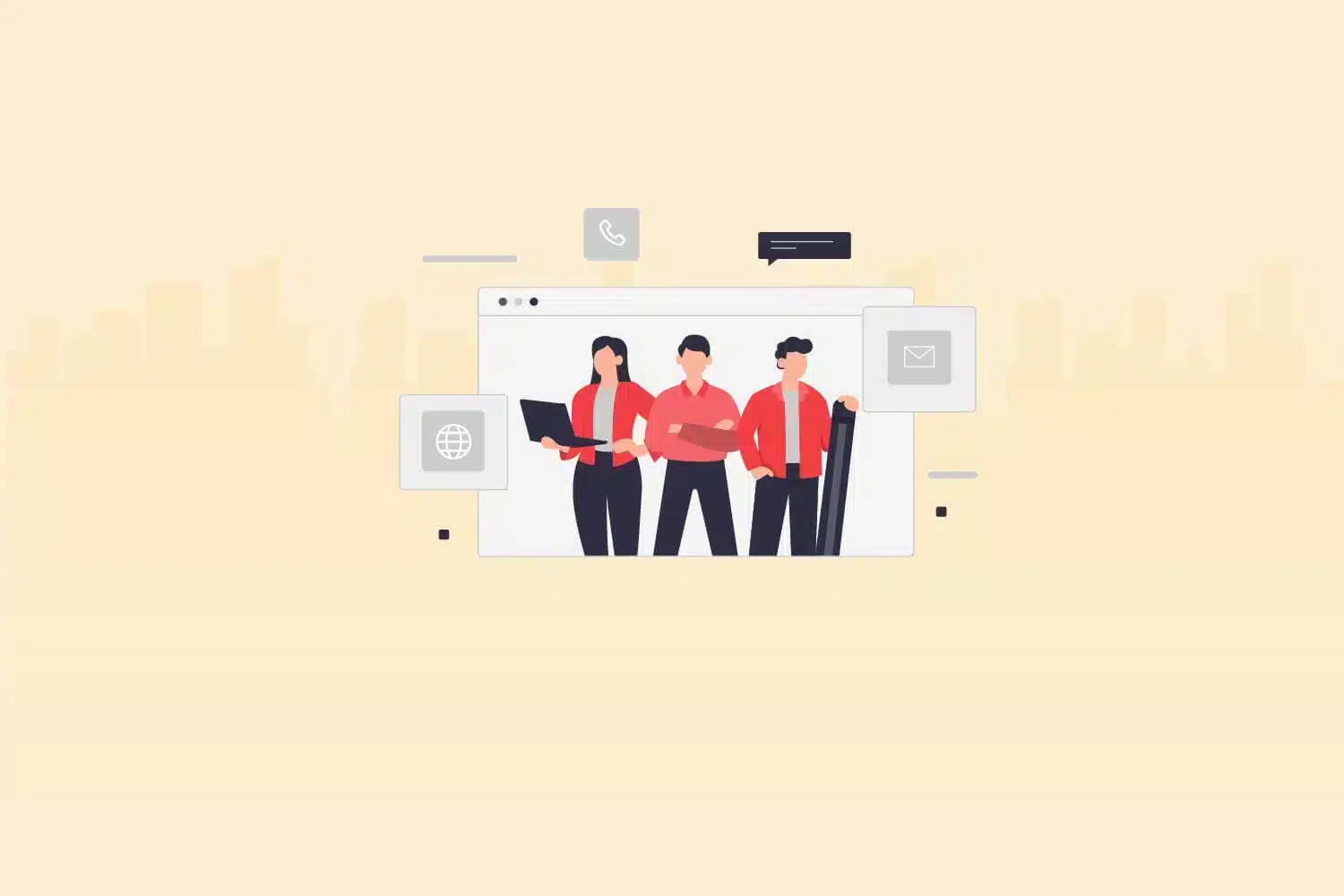In the ever-evolving landscape of workforce management, the concept of talent pools has emerged as a pivotal player in securing the right talent for organizations. As we peer into the horizon of the future, it becomes increasingly evident that talent pools are on the cusp of a transformative journey. To navigate this dynamic terrain successfully, it is crucial to know everything about the future of talent pools.
Talent pools, traditionally a reservoir of potential candidates, are undergoing a metamorphosis driven by technological advancements, data analytics, and shifting workforce paradigms. In this blog, we will embark on a comprehensive exploration of the future of talent pools, delving into the digital transformation, data-driven strategies, diversity and inclusion, the gig economy, and the pivotal role of AI and automation. By the end of this journey, you will be equipped with the knowledge to not only adapt but thrive in the ever-changing world of talent acquisition and management.
So, let’s dive in and unravel the exciting prospects and challenges that lie ahead in the realm of talent pools, as we prepare to usher in a new era of workforce planning and recruitment.
The current landscape of talent pools
Talent pools have long been a cornerstone of effective talent acquisition and management. These pools consist of a curated collection of potential candidates, representing a wide array of skills, experiences, and backgrounds. Historically, organizations have relied on manual processes and traditional methods to maintain these talent reservoirs.
In the current landscape of talent pools, businesses create and manage these repositories to prepare for future hiring needs. This involves identifying and engaging with passive candidates, maintaining relationships with former employees, and continually expanding the pool to meet evolving talent demands.
However, the conventional approach to talent pools has limitations. It often relies on static databases and sporadic outreach, making it challenging to adapt to the fast-paced changes in the job market. Additionally, manual management can lead to data inconsistencies and inefficiencies in the recruitment process.
As we delve into the future of talent pools, it’s crucial to understand their present state. By doing so, we can appreciate the magnitude of the forthcoming changes and the need to embrace new strategies and technologies that will shape the way we manage and leverage talent pools in the digital era.
The shift towards digital talent pools
In an age defined by digital transformation, talent pools are also undergoing a significant shift towards becoming more digitized and technologically advanced. Traditional methods of maintaining talent pools, which often relied on manual record-keeping and periodic updates, are giving way to more agile and tech-savvy approaches.
One of the key drivers behind the shift towards digital talent pools is the need for real-time access and updates. In today’s fast-paced business environment, talent needs can change rapidly, and organizations must be able to respond quickly. Digital talent pools provide the flexibility to access candidate information, skills, and availability instantaneously.
Cloud-based platforms and applicant tracking systems (ATS) have become instrumental in this digital transformation. These tools enable HR professionals and recruiters to centralize candidate data, making it easier to manage and search for potential hires. Moreover, they facilitate automated updates, ensuring that the information remains current and accurate.
Another crucial aspect of digital talent pools is their accessibility. With remote work becoming more prevalent, organizations need the ability to tap into talent from diverse geographical locations. Digital talent pools break down geographic barriers, allowing businesses to access a global talent pool and find the right candidates, no matter where they are located.
The shift towards digital talent pools is not just a matter of convenience; it’s a strategic move to stay competitive and responsive in today’s dynamic job market. As we look ahead to the future of talent pools, this digital transformation sets the stage for even more innovations and improvements in how we attract and retain top talent.
Data-driven talent acquisition
In the future of talent pools, data is set to play a pivotal role in revolutionizing how organizations identify, engage, and secure top talent. Data-driven talent acquisition represents a departure from traditional methods, replacing gut feelings and intuition with actionable insights derived from robust analytics.
The Role of Data Analytics: Data analytics tools and techniques are becoming indispensable in the world of talent acquisition. By analyzing historical hiring data, organizations can identify patterns and trends in their recruitment efforts. These insights can inform decisions on which talent pools to prioritize, where to allocate resources, and how to refine their hiring strategies for better outcomes.
Predictive Analytics for Talent Pool Optimization: Predictive analytics takes data-driven talent acquisition a step further. By leveraging machine learning algorithms, organizations can predict future hiring needs with remarkable accuracy. They can identify the most promising candidates within their talent pools based on a range of factors, from skills and experience to cultural fit, improving the efficiency of the recruitment process.
Enhancing Decision-making: Data-driven talent acquisition empowers organizations to make informed decisions at every stage of the hiring process. From crafting job descriptions and interview questions to assessing the effectiveness of sourcing channels, data-driven insights enable HR professionals to refine their strategies continually.
Measuring Success: One of the most significant advantages of data-driven talent acquisition is the ability to measure success quantitatively. Key performance indicators (KPIs) such as time-to-fill, cost-per-hire, and quality-of-hire can be tracked and analyzed, allowing organizations to fine-tune their processes and maximize the return on their recruitment investments.
In summary, the future of talent pools is intrinsically tied to data-driven talent acquisition. As organizations increasingly rely on data analytics and predictive insights to make informed decisions, they will be better positioned to secure top talent efficiently and strategically. Understanding the role of data in talent acquisition is essential for businesses seeking to remain competitive and adaptive in the evolving talent landscape.
Diversity and inclusion in talent pools
The future of talent pools is not just about sourcing candidates; it’s also about fostering diversity and inclusion within these pools. In recent years, diversity and inclusion have become central pillars of organizational success, and talent pools are no exception to this paradigm shift.
Recognizing the Importance of Diversity: Diversity encompasses a broad range of factors, including race, ethnicity, gender, age, sexual orientation, and more. Inclusive talent pools are designed to ensure that these pools represent a rich tapestry of backgrounds and perspectives. This recognition of diversity’s importance extends to both ethical considerations and the pursuit of better business outcomes.
Building Diverse Talent Pipelines: Organizations are actively seeking ways to build more diverse talent pipelines. This involves not only attracting diverse candidates but also providing them with equal opportunities for career development and advancement. Inclusion ensures that individuals from underrepresented groups are not just part of the talent pool but are actively considered for roles.
The Business Case for Diversity: Beyond ethics and inclusivity, there’s a compelling business case for diversity. Diverse teams are known to be more innovative, better problem solvers, and more adaptable. They can relate to a broader customer base, making organizations more competitive in diverse markets.
Creating an Inclusive Culture: It’s not enough to simply have diversity in your talent pool; you must also cultivate an inclusive culture. Inclusive talent pools are characterized by organizations that champion diversity at every level, from leadership to entry-level positions. This sends a powerful message that diversity is not just a checkbox but a fundamental part of the company’s DNA.
As we peer into the future of talent pools, it’s evident that organizations will increasingly focus on fostering diversity and inclusion. Talent pools will serve as a reflection of an organization’s commitment to these values, ensuring that opportunities are accessible to a broader spectrum of individuals. By embracing diversity and inclusion within talent pools, organizations are not only future-proofing their workforce but also taking a significant step towards building a more equitable and innovative future.
The gig economy and the gig talent pool
The gig economy, characterized by short-term contracts, freelance work, and independent contracting, is reshaping the employment landscape. As this trend continues to gain prominence, it is also influencing the composition and dynamics of talent pools, giving rise to what we can refer to as the “gig talent pool.”
Understanding the Gig Economy: The gig economy represents a significant departure from traditional full-time employment. Workers in the gig economy often operate as independent contractors or freelancers, taking on project-based or temporary roles. This trend is driven by factors like flexibility, autonomy, and the pursuit of diverse experiences.
The Emergence of the Gig Talent Pool: As more individuals participate in the gig economy, they become part of the gig talent pool. These individuals possess valuable skills and expertise, making them attractive candidates for organizations looking for flexible workforce solutions. The gig talent pool is characterized by its agility and adaptability, making it an invaluable resource for businesses with fluctuating talent needs.
Benefits and Challenges: Leveraging the gig talent pool offers several advantages, including access to specialized skills, cost savings, and the ability to scale up or down quickly. However, it also presents challenges in terms of managing remote and independent workers, maintaining continuity, and ensuring compliance with labor laws.
Incorporating Gig Workers: Organizations are now incorporating gig workers into their overall talent strategy. This involves identifying how gig workers fit into the broader workforce, creating policies and processes to manage them effectively, and ensuring that they are integrated seamlessly into the organization’s culture.
The gig economy and the gig talent pool are integral components of the future of talent pools. As businesses adapt to the changing world of work, they must embrace the opportunities presented by gig workers and explore innovative ways to tap into this diverse and dynamic talent pool. By doing so, organizations can gain a competitive edge in an evolving job market characterized by flexibility and adaptability.
AI and automation in talent management
Artificial intelligence (AI) and automation are ushering in a new era of talent management, fundamentally changing how organizations engage with and leverage talent pools. The integration of AI and automation promises to make talent management more efficient, data-driven, and responsive to evolving workforce needs.
AI-Powered Matching: AI algorithms are becoming increasingly sophisticated at matching candidates to job roles. By analyzing vast datasets, AI can identify candidates with the most relevant skills, experiences, and cultural fit, streamlining the candidate selection process and improving the quality of hires.
Automated Candidate Sourcing: Automation tools can scour the internet and various databases for potential candidates, saving HR professionals valuable time. These tools can also engage candidates through chatbots and automated emails, ensuring that talent pools remain engaged and up to date.
Enhanced Candidate Experience: AI-driven chatbots and virtual assistants provide candidates with immediate responses to inquiries and support throughout the application process. This not only improves the candidate experience but also helps organizations maintain positive relationships with potential hires.
Data-Backed Decision-making: AI and automation generate vast amounts of data that can be leveraged to inform decision-making. Predictive analytics can identify trends and patterns in candidate behavior, enabling organizations to refine their talent management strategies continually.
While AI and automation offer numerous advantages in talent management, they also raise questions about the role of human judgment and ethical considerations in the recruitment process. Striking the right balance between technology and human intervention is a critical challenge that organizations will face in the future of talent pools.
As AI and automation continue to evolve, their integration into talent management will shape the way organizations interact with their talent pools. Embracing these technologies can lead to more efficient and effective talent management practices, ultimately driving better outcomes for both organizations and candidates alike.
Building future-ready talent pools
As we navigate the ever-evolving landscape of talent acquisition and management, it becomes evident that building future-ready talent pools is imperative for organizational success. To remain competitive and adaptive in the changing world of work, organizations must adopt strategies that ensure their talent pools are prepared for the challenges and opportunities that lie ahead.
Embracing Flexibility: Future-ready talent pools are characterized by their adaptability. Organizations should be prepared to pivot quickly in response to changing market conditions, technology disruptions, and shifting workforce demographics. This requires a willingness to experiment with new approaches and technologies.
Continuous Learning and Development: Talent pools of the future will be populated by individuals who prioritize continuous learning and skill development. Organizations can play a role in fostering this culture by offering training and upskilling opportunities to both internal and external candidates.
Data-Driven Decision-making: Leveraging data and analytics is a hallmark of future-ready talent pools. Organizations should invest in tools and technologies that enable them to make data-driven decisions regarding talent acquisition, workforce planning, and performance evaluation.
Agility in Sourcing: Future-ready talent pools extend beyond traditional recruitment channels. Organizations should be open to sourcing talent from a variety of sources, including gig workers, freelancers, remote employees, and global talent markets. Agility in sourcing ensures access to diverse skill sets and experiences.
Inclusivity and Diversity: Building future-ready talent pools also involves a commitment to inclusivity and diversity. Organizations must actively seek to create a workforce that reflects a broad spectrum of backgrounds and perspectives, enhancing innovation and competitiveness.
Adapting to Remote Work: The rise of remote work is an ongoing trend that future talent pools must accommodate. Organizations should develop strategies for effectively managing and engaging remote talent, including establishing clear communication channels and fostering a sense of belonging.
In conclusion, building future-ready talent pools is a strategic imperative for organizations aiming to thrive in an ever-changing job market. By embracing flexibility, continuous learning, data-driven decision-making, and inclusivity, businesses can position themselves for success and remain agile in the face of evolving workforce dynamics. Future-ready talent pools are not just a response to change; they are an essential element of shaping the future of work itself.
Conclusion
In the landscape of modern workforce management, the future of talent pools is poised for innovation and transformation. As we’ve explored throughout this blog, these reservoirs of potential candidates are adapting to the digital age, embracing data-driven strategies, championing diversity and inclusion, and accommodating the burgeoning gig economy. The infusion of AI and automation is further reshaping the way we connect and engage with talent.
To remain competitive and agile in the face of these changes, organizations must recognize the paramount importance of staying informed and adaptable. The future of talent pools holds promise, but it also presents new challenges that demand our attention.
As businesses and HR professionals, we must harness the power of technology and data analytics to cultivate dynamic talent pools that can support our evolving needs. We must champion diversity and inclusion to drive innovation and enrich our organizational culture. And we must embrace the opportunities presented by the gig economy and automation, finding ways to leverage these trends for the benefit of both our organizations and our workforce.
In the end, the future of talent pools isn’t just about the tools and strategies we employ; it’s about fostering an environment of continuous learning, adaptability, and forward thinking. By doing so, we can build future-ready talent pools that empower us to thrive in the ever-changing world of talent acquisition and management. So, as we look ahead, let’s embark on this journey with open minds and a commitment to shaping the future of our talent pools for the better.
Do you want to scale your talent pool and hire the best? then testlify is the answer for you. We offer 1200+ custom test library tests for assessing talents ranging from content writers to high end software developers.








